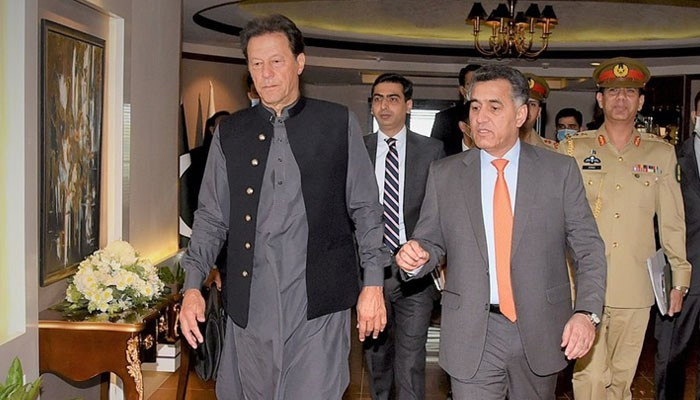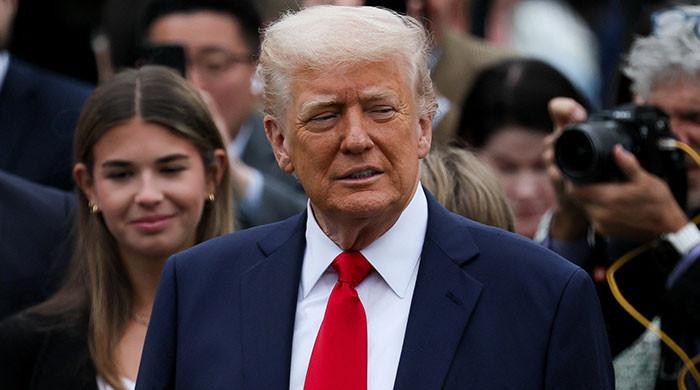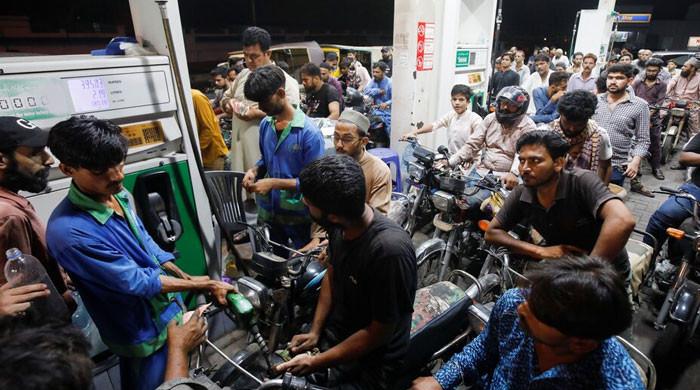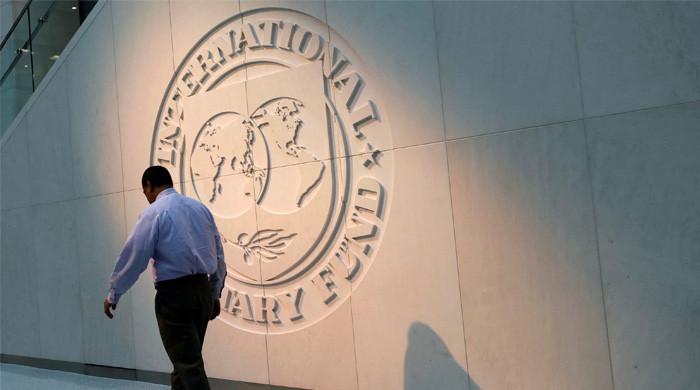The 'trial of a General'
In the coming weeks or months, we may witness the conclusion of Gen (retd) Faiz Hamid’s trial, if not Imran Khan’s
December 12, 2024

The late Senator Mir Hasil Bizenjo stands vindicated today, with a charge sheet framed against former ISI chief Lieutenant General (retd) Faiz Hamid for his involvement in political activities. In 2018, Hasil had accused the former spy chief of gross manipulation during the Senate chairman elections, saying on the floor of the upper house of parliament that he had been defeated not by his fellow senators but by Faiz. "Today, I was defeated by Gen Faiz and not by my fellow senators," Hasil had said emotionally in his final speech in the Senate, before passing away after making history by losing the election despite holding a clear majority. One can only hope that this trial may not turn out to be like any other but that the institution itself learns lessons on why it should not engage in politics.
Had some of Faiz's predecessors — from General Hameed Gul to General Pasha, General Zaheer ul Islam and others — been made accountable, Pakistan’s institutional and political history would be different today. The Asghar Khan case was a classic example of the establishment's involvement in politics.
The late Hasil, son of former Balochistan governor and respected politician Mir Ghous Bux Bizenjo, had the courage to name Faiz when he was all-powerful. However, one must also examine Faiz’s role in the creation of the Balochistan Awami Party (BAP) after causing a split in the PML-N in the province. If Faiz's trial proceeds, will his political involvement, both during his service and after his retirement, come under scrutiny? Moreover, will the role of former army chief General Qamar Javed Bajwa be overlooked?
It is high time to correct the “historical wrong”, and the fact remains that Hasil, not Sadiq Sanjrani, could have been the chairman of the Senate had Faiz allegedly not intervened. Now, the question is how far Faiz’s role will be established. Hasil became the victim of Faiz’s political ambition.
The individuals who were Faizyab, whether in politics, the judiciary, or even within the media, should also come to the surface. The Field General Court Martial of Faiz Hamid could be the "News of the Year", if not of the decade, but it is still premature to comment on the final outcome of the trial and the future political narrative, especially if he is also tried for his role in the May 9, 2023 attacks on sensitive military and intelligence installations.
According to the press release from the ISPR, issued on December 10, 2024, Faiz has been charge-sheeted for his role in politics and violations of the Official Secrets Act and the Army Act. If proven guilty, he could face a long prison term. The second part of the ISPR statement relates to the May 9 attacks on military and intelligence installations, which is still under investigation concerning Faiz’s role. If his involvement and his connection with former prime minister Imran Khan are proven, it would be bad news for both Faiz and Khan. This may turn out to be the "Mother of all trials", as for the first time in Pakistan’s turbulent political history, a former premier and spy chief could face trials of this nature.
The million-dollar question is whether this development will set a precedent for the "zero involvement" of intelligence agencies or influential figures in politics. This concept of political involvement could open a "Pandora's Box." Secondly, will this pave the way for the closure of Gate No 4, a term often used by former ally Sheikh Rashid Ahmad?
The trial, as usually happens in military courts or Field General Court Martial, will unfold with time. It certainly sets a precedent, and one can only hope that the institution itself takes the decision of non-involvement in politics, and that this policy is not restricted to a person-specific basis.
Like some of his predecessors, Faiz's political ambitions were noticed during Imran Khan’s government, particularly when former army chief Gen Bajwa moved a file to transfer Faiz to another corps. However, the then-prime minister delayed signing the transfer order despite repeated requests from the army chief. Imran Khan later defended his decision by stating, "I had not refused, but asked Gen Bajwa to delay it until December, as I was expecting a breakthrough in Afghanistan." This was during October 2021, when news stories about their differences began to make headlines.
During this period, Faiz’s rare photographs at Kabul airport sparked debate in the media, as the ISI chief typically avoided pictures, yet these were either released or leaked. Khan also defended the agencies' phone tapping, even of the Prime Minister’s House, amid the opposition's criticism.
The question remains as to what Faiz himself will say in his defence and what kind of evidence will be presented in the Court Martial. The violation of the Army Act may pertain to his post-retirement activities, which could date back up to five years. No government servant can play an active role in politics until two years after retirement; however, amendments to the law in 2023 now stipulate a five-year waiting period for officers or heads of institutions before they can engage in politics.
The investigation into Faiz’s role in the May 9 events and his connection to Imran Khan, both pre- and post-May 9 mayhem, remains a significant factor. If their nexus is established, there is a possibility that both Faiz Hamid and Imran Khan could face trials for the May 9 events. Khan has called for a judicial commission on the May 9 attacks while opposing military courts. However, in the past, he defended civilian trials in the military courts, and a petition regarding this is still pending in the Supreme Court.
Pakistan’s premier intelligence agencies have historically faced criticism for their involvement in politics, particularly following the establishment of the "Political Cell" under former prime minister Zulfiqar Ali Bhutto in 1974, which targeted opposition parties, especially the defunct National Awami Party (NAP). In 1990, former Air Chief Marshal Asghar Khan raised concerns about the ISI’s involvement in politics, which were further addressed through the Mehran Bank case. In 1995, Khan wrote to the Supreme Court seeking clarification on the existence of the ISI Political Cell, which the agency later claimed had ceased to exist.
Before Gen Faiz, former army chief Pervez Musharraf was also charged under Article 6 of the Constitution in 2007, and although he was brought to court, he was sent abroad before the trial could proceed.
Gen Hameed Gul, the former ISI chief, once admitted in an interview that the military’s political involvement began with Ayub Khan’s appointment as defence minister while still an army chief. Gul himself was active in politics and notably formed the Islami Jamhoori Ittehad (IJI) opposition alliance in 1988 to block Benazir Bhutto from gaining a two-thirds majority.
In the coming weeks or months, we may witness the conclusion of Faiz Hamid’s trial, if not Imran Khan’s. However, whether this will end political interference by non-political figures remains to be seen, and the final verdict in Faiz’s case, along with the institution's stance, will be crucial.
The writer is an analyst and columnist for GEO, The News, and Jang.
X: @MazharAbbasGEO
Disclaimer: The viewpoints expressed in this piece are the writer's own and don't necessarily reflect Geo.tv's editorial policy.











